A sole proprietorship is a type of business structure where a single person owns and runs the business. This is the simplest form of business entity, and it’s popular because it’s easy to set up, it doesn’t require any paperwork, and there are no special taxes or fees associated with this type of business. But while it’s easy to start, running a sole proprietorship can be tricky—especially if you don’t have experience managing your own business.
Here are some of the pros and cons of sole proprietorship:
Let’s look at some pros of sole proprietorship for a business:
Easy to start
Setting up a sole proprietorship is relatively easy and inexpensive compared to other business structures. There is no need to file any paperwork or obtain any licenses or permits. In fact, the only requirements for a sole proprietorship are that you must have a name for your business and that it be carried out in your name, but not necessarily under your name. So if you wanted to start a business called “Bob’s Burgers,” but your name is actually Bob Smith, you could set up this business using your own name, so long as it was clear who owned the business.
Complete control
As the sole owner of your business, you have complete control over all decisions. That means you can manage the day-to-day operations, make sure the finances are in order, and do whatever it takes to keep your business running smoothly. You’re not bound by any partnership agreements or other legal contracts that might limit your authority. This also means that you are responsible for making sure that your business meets all regulations and standards in your industry, as well as complying with federal laws and regulations.
Tax advantages

As a sole proprietor, you are not required to pay separate business taxes. Instead, the profits or losses of the business are reported on your personal tax return, which can result in lower tax rates.
The reason for this is that when you have a sole proprietorship, you treat yourself as both the employer and the employee. This means that any money that goes into your business comes out of your pocket as income and is taxed at ordinary income rates. So if you earn $100 from your company this year, it’ll be taxed at whatever rate applies to your other income—which could be as low as 10% depending on your situation.
Flexibility
The major benefit of a sole proprietorship business structure is it’s flexibility. It’s also one of the easiest to set up, which makes it a great option for people who are just starting out or who have little money to invest.
A sole proprietorship lets you run your business however you want to, so long as your actions don’t violate any laws or regulations. This means that you can keep your business running at home and still make money, if that’s what works best for you. It also means that there are no formalities or regulations that need to be followed—just make sure that everything is in order!
Now let’s talk about some of the cons of a sole proprietorship business:
Unlimited personal liability
As a sole proprietor, you are personally liable for all debts and obligations of the business. This means that if the business is sued or incurs debt, your personal assets can be used to pay off those obligations. One of the benefits of being a sole proprietor is that you don’t need to worry about paying taxes on your profits because they’re not taxed as a separate entity. Instead, they’re simply added on to your personal tax return at the end of the year.
If you have employees who work at least two hours per week, you must pay them at least minimum wage in addition to any expenses related to their employment (such as insurance). If an employee works more than forty hours per week or works more than five hours on a given day, they’ll also be eligible for overtime compensation. You’ll need some basic business knowledge and financial skills if you want to successfully operate as a sole proprietor. You’ll also need some startup capital before launching your business—but if you already have money saved up or get access to an investor’s funds then this may not be necessary!
Limited resources
With a sole proprietorship, you’re the boss and you make all the decisions, you have complete control over your business, and you can do whatever you want with your assets. But there are drawbacks to this type of business structure. For example, because it’s so easy for a sole proprietorship to be set up, there are fewer regulations on how much capital is required to start one up. That means that sole proprietors often have limited resources and may find it difficult to secure financing or invest in the business.
Lack of continuity
There is one big downside to a sole proprietorship: it’s dependent on the owner. If the owner becomes incapacitated or passes away, the business may cease to exist. This may not be a concern for many businesses—if you are working on your own, or if there are other employees who can take over when you’re off sick or if something happens to you, then this might not be an issue for your business. But if you’re thinking of starting a family business or passing on your business to your heirs someday, this is something you’ll want to think about.
Difficulty in raising capital

Raising capital can be difficult for sole proprietors as lenders and investors prefer to work with larger businesses with multiple owners. Sole proprietors often have a hard time convincing lenders that they can make the payments on their loan, because the lender does not see any other owners who will be obligated to make those payments if the sole proprietor is unable to do so. Additionally, if you are a sole proprietor, you may need partners or investors who are willing to help you expand your business in order to grow your revenue and increase profits.
As you can see, sole proprietorship is a great choice for a small business that doesn’t need to be incorporated. It offers complete control and flexibility, which are often important for new businesses. However, it also has some serious limitations, including limited liability and no tax benefits or deductions. So before deciding on a sole proprietorship, make sure you understand the risks and limitations of this business structure so you can make an informed decision about whether it’s right for you!
RUCHI RATHOR Founder & CEO
Payomatix Technologies Pvt. Ltd.
FOUNDER AND INVESTOR | PAYMENTS PROCESSING EXPERT | MERCHANT ACCOUNT SOLUTIONS | WHITE LABELLED PAYMENT GATEWAY | Dreamer, Creator, Achiever, Constantly Evolving
Website Ruchi Rathor: https://ruchirathor.com
Website Healing Heart https://thehealingheart.me/
Instagram https://www.instagram.com/_ruchirathor_/
LinkedIn https://www.linkedin.com/in/ruchirathor12/
Facebook https://www.facebook.com/ruchi.rathor.magnificient
Tumblr https://www.tumblr.com/blog/ruchirathor-thehealingheart
Medium https://medium.com/@ruchirathor_23436

